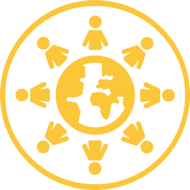
(View Complete Item Description)
This unit is designed to build inquiry about and interest in the themes and topics woven throughout Educurious’s multi-unit Washington State History course. To start off, students discover and share how they are connected to their classmates by participating in a “Web of Connectedness” activity. Throughout the unit, students engage in mapping, data visualization, and cost-benefit analyses in order to unpack the theme of connectedness and answer the unit driving question: How are people in Washington connected to each other and the rest of the world? As students learn about resources, economies, innovations, people, and places in Washington, they draft a series of six interactive community boards that educate others about the ways in which people are connected. For the culminating product of this unit, student teams finalize one of their six draft community boards to help students in their school make connections between themselves, Washington, and the world.
Material Type:
Lesson,
Lesson Plan,
Module,
Teaching/Learning Strategy,
Unit of Study
Author:
Educurious .




















